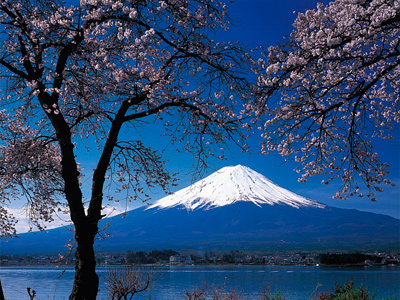| Official Name: | Japan | Population: | 127 million people |
| Capital: | Tokyo | State language: | Japanese |
| Form of Government: | Constitutional Monarchy | Administrative division: | Japan comprises 47 prefectures |
| International phone code: | 81 | Time difference with Moscow: | + 6 hours |
| Monetary unit: | Japanese Yen (JPY) | Rate: | 100 JPY = 50.05 RUR |
EDUCATIONAL INSTITUTIONS

INFORMATION ABOUT JAPAN AND ITS EDUCATION SYSTEM
General information about the country.
Japan is an island country in East Asia. Japan is located in the Pacific Ocean, east of the Sea of Japan, China, North and South Korea and Russia, the region stretches from the Sea of Okhotsk in the north to the East China Sea and Taiwan in the south. Japan is located in the Japanese archipelago consisting of 6,852 islands. Four biggest islands – Honsu, Hokkaido, Kusu and Sikoku – are 97 % of the territory of the country. Mainly, the islands are mountain, many of them are volcanic. The highest spot of Japan is volcano Fudzy. There are 127 million people in Japan, it means the country is 10th by population in the world. Big Tokyo includes the capital of the country – Tokyo – and some of the nearby regions, it has more than 30 million people and is the biggest region of its kind in the world. Japan is developed country with very high level of living (10th in the world ranking). In Japan there is one of the highest life length in the world, in 2009 it was 82, 12 years, and it also has one of the lowest level of children’s death. Japan is a member of Association of eight big countries and ATAS, and also is a temporal member of the Security Council UNO. The official language is Japanese.
Higher education in Japan.
Student can enter Japan university if he has a Secondary Education Diploma. The higher education system consists of four main institutions: universities of full circle, universities of accelerated circle, professional colleges, technical institutions.
Universities of full circle.
The length of study at full circle university is 4 years, but at the medical and vet faculties it’s 6 years. After graduation student can progress to Masters Degree or Doctoral Degree. To get Masters Degree in Japan universities students have to study two years. To get Doctoral Degree students have to study 5 years. Japan institutions have a unique institution of student-researcher – kankusay. It means that the student, who is going to get a science degree, has an opportunity to do a research in certain area from 6 months to 1 academic year.
Accelerated circle universities.
In accelerated circle universities the length of study is 2 years, but for medical faculty it’s 3 years. About 60% of accelerated circle universities students are women. They specialize in economics, literature, foreign languages, pedagogic, social protection.
Professional colleges.
This type of education is oriented to students, who want to get special technical education. The length of study is no more than 3 years.
Technical institutions.
The length of study is 5 years, and there students get high quality technical education. After graduation students work at firms and research centers, connected with development of new technology – nou-hau. At technical institutions there is also preparation of the specialists of sales field.
Master’s and Doctoral Degrees.
For Master’s Degree student has to study for 2 years, prepare a master’s dissertation and have a good mark for it, and also have an exam on his specialty. The length of study for Doctoral Degree is 3 years, but only after 2 years study for Master’s Degree. Student is considered to graduate to Doctoral Degree if he make a doctoral dissertation for good mark and have an exam of the specialists.
Education for foreigners.
Recently The Ministry of Higher Education in Japan Mombuse is getting to pay attention to short-term forms of special education for foreign students. The length of study in such cases is from 1 semester to 1 year. There are about 20 private universities in Japan, which have such programs of study. The total amount of such institutions is highly increased, also by state universities. But Japan Ministry of Higher Education and private funds give scholarships and other types of financial support in such cases, that were designed for students of full circle universities.

 +7 (495) 228 03 00
+7 (495) 228 03 00
 Japan
Japan


